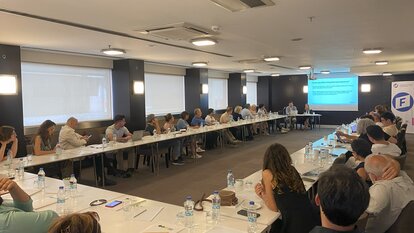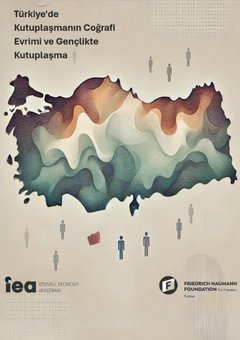Youth Polarization in Türkiye
Geographical Evolution of Polarization and Youth Polarization in Türkiye

Polarization has become a significant issue impacting the stability of democratic systems globally, and Türkiye is no exception. Over the past two decades, political and social polarization in Türkiye has intensified, especially observed in elections. Understanding these dynamics is crucial for developing strategies to mitigate the adverse effects of polarization on democratic governance and social cohesion. This study was initiated to explore the geographical evolution of polarization in Türkiye and to analyze the political attitudes and polarization levels among the youth.
The primary aim of this research was twofold: first, to analyze the geographical evolution of election polarization in Türkiye from 2002 to 2023, and second, to investigate the levels and dimensions of polarization among young people aged 18-30. By examining electoral data and conducting a detailed survey, the study sought to identify the factors driving polarization and to provide insights into how these dynamics manifest across different groups of people.
The findings revealed several key trends:
Geographical Polarization: Polarization has increased across all geographical levels in Türkiye. The Simpson Diversity Index was utilized to quantify electoral polarization, revealing a marked increase in the diversity of political preferences. Areas that previously showed more balanced political landscapes have become more polarized, with dominant parties gaining more support. Coastal regions, traditionally less polarized, have shown significant increases, aligning more closely with the higher levels of polarization observed in inland regions. In major cities like Istanbul, Ankara, and Izmir, central neighborhoods experienced increased polarization, while suburban areas showed a decline. This indicates a shift in political dynamics within urban populations, potentially influenced by socio-economic factors and demographic changes.
Youth Polarization: The survey revealed significant ideological divides among the youth, particularly on social issues. Topics like the normality of extramarital sexual relationships and LGBT rights highlighted stark differences, with conservative views predominating among certain groups. In contrast, there was less polarization on economic issues such as income equality, privatization, and economic privileges. Responses were more balanced and symmetrical, indicating that economic matters do not cause significant polarization among the youth.

There was a notable consensus on the acceptance of refugees, with the majority of respondents agreeing that their presence is unacceptable under any circumstances. Similarly, there was broad agreement on the traditional view that women should not be primarily responsible for childcare, rejecting deep-seated gender norms. Despite conservative views on some social issues, the youth showed a more progressive stance on gender equality in the workforce. The participation of women in the labor market and balanced domestic responsibilities were generally seen as acceptable and necessary.
The level of religiosity was a strong predictor of political attitudes and polarization. Youth with higher levels of religiosity tended to have more conservative views, particularly on social issues. This underscores the influence of religious values on the political landscape among the youth in Türkiye.
Political party affiliations played a significant role in shaping opinions on various issues, reinforcing the polarization within the youth demographic. Youth identifying with opposition parties tended to have more liberal and open-minded attitudes, while those aligning with ruling parties were more conservative and traditional. However, this political divide was not uniform across all issues.These findings indicate that while there are areas of significant ideological divide among Turkish youth, particularly on social issues, there are also topics that unite them, especially economic issues and certain social responsibilities. The influence of religiosity and socioeconomic factors further highlights the complexity of youth polarization in Türkiye.

